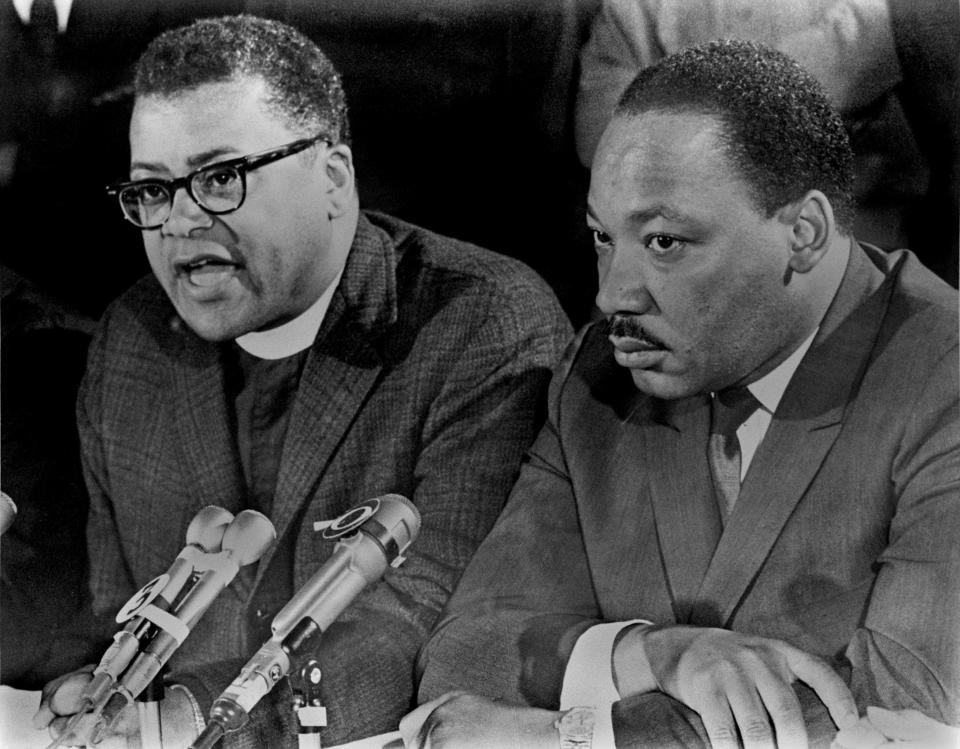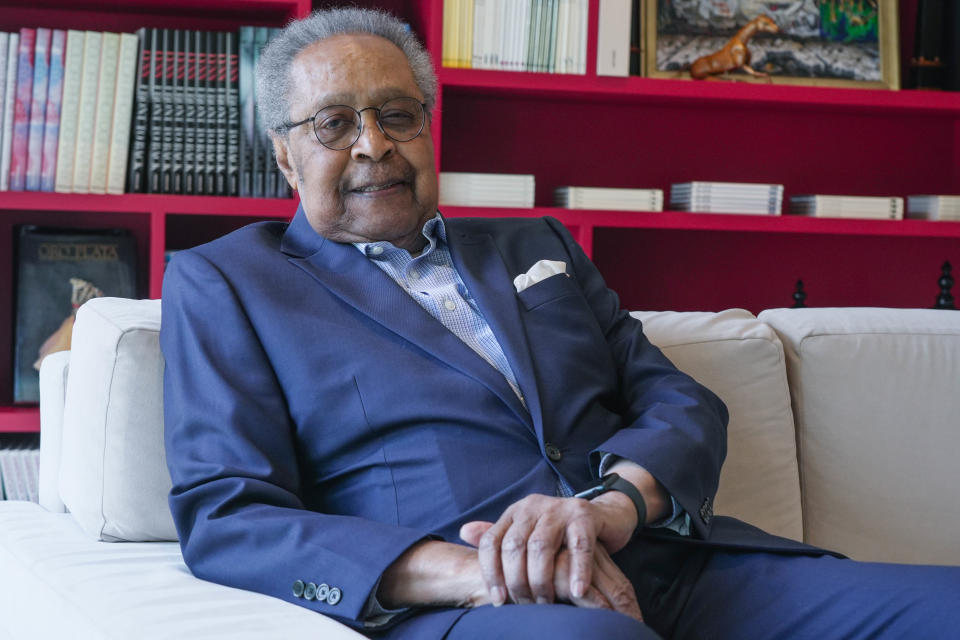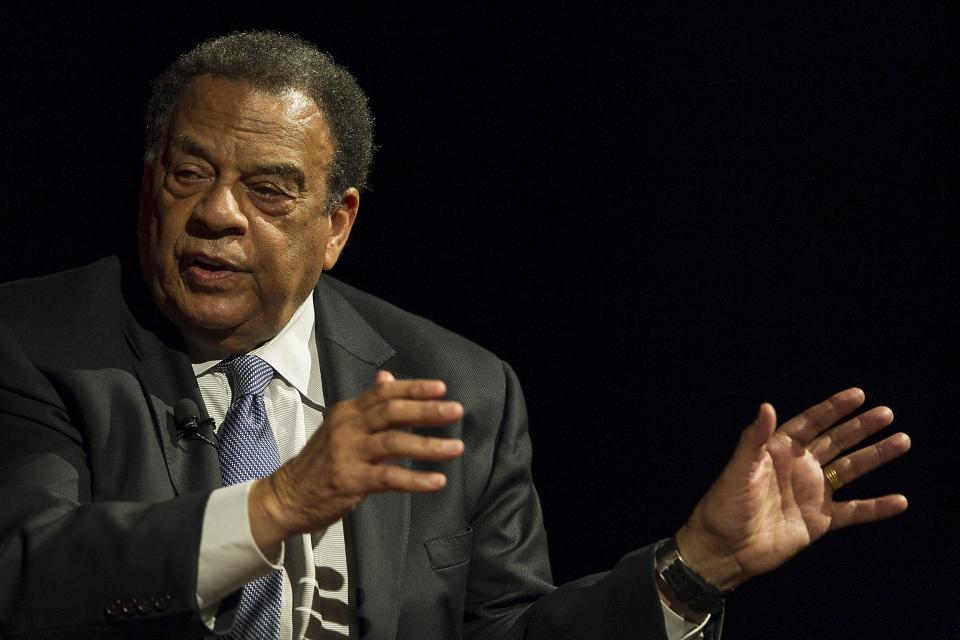We were Martin Luther King Jr.'s inner circle. Now, only two of us remain.
Each of us was blessed by our close relationship with Dr. Martin Luther King Jr. and our close friendship across six decades. At 93 (Dr. Jones) and 91 (Ambassador Young), we have each been blessed with longevity denied to our dear friend Martin, who was assassinated on April 4, 1968, at the age of 39.
Today, we mourn and remember the Rev. James M. Lawson, a moral leader of unparalleled stature and unshakable courage. Rev. Lawson’s recent passing is an enormous loss for civil rights, for our country and indeed for the world because of his steadfast, unshakable commitment to nonviolence and the principles and precepts of Mahatma Gandhi and the work of Dr. Martin Luther King Jr.
Rev. Lawson's central importance in the Black Freedom Movement in the United States cannot be overstated. More than any other figure, Lawson brought the philosophy and methods of Gandhian nonviolence to Dr. King personally and to the Southern Christian Leadership Conference, in which we were both honored to serve. Rev. Lawson trained the Nashville students and clergy who became leaders in the sit-in movement of 1960 and the Freedom Rides of 1961, including John Lewis, Diane Nash, Bernard Lafayette and the Rev. C.T. Vivian.
Defining the Student Nonviolent Coordinating Committee

When the great civil rights organizer Ella Baker invited Black college students to an April 1960 gathering at Shaw University in Raleigh, North Carolina, Rev. Lawson drafted the statement of purpose for the transformational organization that emerged, the Student Nonviolent Coordinating Committee.
Lawson’s statement was infused by Gandhian commitment that defined SNCC’s early years: “We affirm the philosophical or religious ideal of nonviolence as the foundation of our purpose, the presupposition of our faith, and the manner of our action. Nonviolence as it grows from Judaic-Christian traditions seeks a social order of justice permeated by love.”
MLK was my friend. How can I be excited for the future when lessons from past are ignored?
In 1963, these streams came together as Dr. King decided to align with the Rev. Fred L. Shuttlesworth in an intensive nonviolent campaign to desegregate Birmingham, Alabama, a city where the large African American community experienced entrenched systemic racism and pervasive violence.
On Jan. 10, 1963, Dr. King called a meeting of his inner circle of advisers to plan the Birmingham Campaign, which we called “Project C" for confrontation. About a dozen of us met at Dorchester Academy, near Savannah, Georgia.
Last week three of the participants in that meeting were alive; this week, following Rev. Lawson's passing, we are the only survivors.

MLK praised the Rev. James Lawson's 'noble' ministry
At the Dorchester meeting, as in all conversations with Dr. King and colleagues, Rev. Lawson insisted on the purity and discipline of nonviolence, and the unity of means and ends, as the organizing principle for all of our desegregation efforts.
Five years later, in early 1968, it was Rev. Lawson who invited Dr. King to Memphis to demonstrate his support for the nonviolent campaign of local sanitation workers for human dignity and economic justice. In his final speech, given at the Mason Temple on the night before his assassination, Dr. King praised Rev. Lawson’s “noble” ministry: “He’s been going to jail for struggling; he’s been kicked out of Vanderbilt University for this struggling; but he’s still going on, fighting for the rights of his people.”
In Martin Luther King's last speech, people remember the mountaintop but ignore the poor
Inspiring countless students and activists, Rev. Lawson sustained this struggle for human rights as a Methodist minister, professor, strategist, organizer and apostle of Ghandian nonviolence, throughout his life until the day he died on June 9, at 95 years old. No one has had more influence and impact as a practitioner, teacher and trainer of nonviolent direct action.
Opinion alerts: Get columns from your favorite columnists + expert analysis on top issues, delivered straight to your device through the USA TODAY app. Don't have the app? Download it for free from your app store.
The Rev. James Lawson's legacy is etched in the lives of all Americans who have participated in and benefited from the long march to achieve racial and economic justice in the United States. He was the soul of the nonviolent Black Freedom Movement, an unparalleled moral inspiration for Martin Luther King Jr. and for each of us, and for every major civil rights leader in our country.
When a great man dies, we often say that the tallest tree in the forest has fallen.
As we remember Rev. Lawson, we recognize that the forest itself has fallen.

Walt Whitman’s poem “O Captain! My Captain!” mourned the death of Abraham Lincoln. Today, as we mourn the loss of the Rev. James Lawson, we remember our great mariner. Never distracted, Rev. Lawson kept his eye on the sky and the sea, always reminded us that nonviolence is the only path to love, justice and the "beloved community."
May his memory be a blessing.
Clarence B. Jones, personal attorney and speech writer for the Rev. Martin Luther King Jr., is co-founder of the Clarence B. Jones Institute for Social Advocacy. His new memoir, written with Stuart Connelly, is "The Last of The Lions." Andrew J. Young, congressman from Georgia and ambassador to the United Nations, is chairman of the Andrew J. Young Foundation.
You can read diverse opinions from our USA TODAY columnists and other writers on the Opinion front page, on X, formerly Twitter, @usatodayopinion and in our Opinion newsletter.
This article originally appeared on USA TODAY: James Lawson's nonviolence inspired Martin Luther King – and us all


